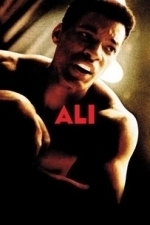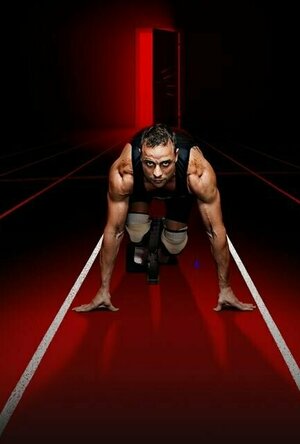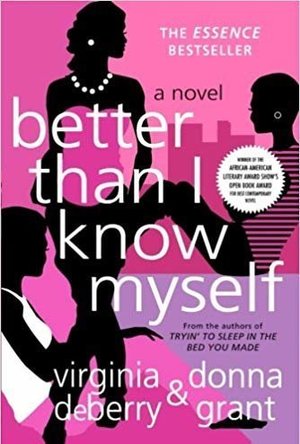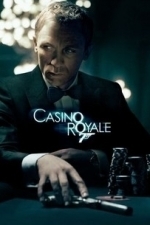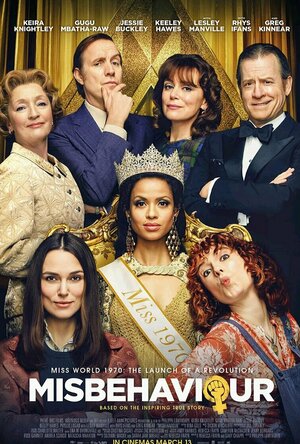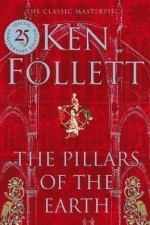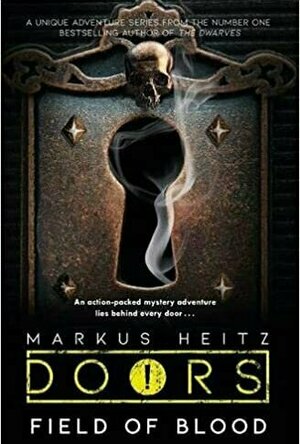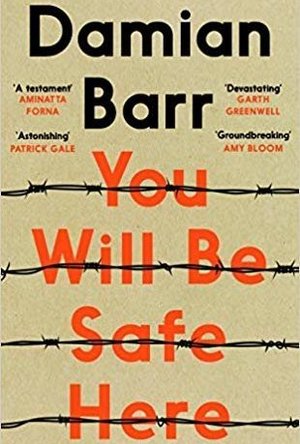Search
Search results
Darren (1599 KP) rated Ali (2001) in Movies
Jun 20, 2019
Story: Ali starts on the brink of Cassius Clay (Smith) first title match in 1964, a match he wins to become heavyweight champion of the world, with his place on top of the world ready, Cassius joins forces with Malcolm X (Peebles) becoming a Muslim in the process, changing his name to Muhammad Ali.
With the Vietnam war drafting men from America, Muhammad is drafted, but he refuses to go and fight which leads him to be stripped of the title and banned from fighting in certain states, Ali uses his to create one of the biggest fights in history, The Rumble in the Jungle.
Thoughts on Ali
Characters – Muhammad Ali is one if not the most famous boxers in the world, in the history of the sport, he help shape the sport to be what we know now, with his charisma and loud behaviour against his opponents, we follow just ten years of his life, from his first title win, through his religious change, the battle against the government about fighting in the Vietnam war, to being part of one of the biggest fights in boxing history. When we focus on the rest of the real-life people we get to see the loyal people in his life, reporter Howard Cosell that seemed to have a wonderful relationship which included banter between the two and the promoters that make the fight possible.
Performances – Will Smith in the role of Ali is brilliant, this is easily his best performance of his career showing the world that he can have his wise cracking side mixed with the serious side. We have an unrecognizable Jon Voight who is shows us all that how easily he can morph into any role. The rest of the supporting cast are good without being fantastic or taking away anything from Smith in the leading role.
Story – The story here takes us into Muhammed Ali’s life for ten years, we get to see from the night he first won the title till the famous Rumble in the Jungle match. We do see the obstacles he must overcome to remain the man he was which in itself is an incredible story during late 60s America. My issues with the story come from not seeing everything that Ali went through in this career, mostly the rise to the top, which could have been an even more interesting story. for the story to only cover 10- years is interesting because we could have seen so much more of the legal battle against the government, the religious battles he faced because of his stance on war and action with the women. The truth is, Ali lived an amazing life and there are so many story we could learn about him from his career any film just can’t cover them all.
Biopic/Sports – Ten years of one of the great boxers in the history of the sport, one of the men that changed the sport almost doesn’t give it enough justice. The sports side of the film comes from the boxing scenes which are incredibly real through the film we do get a couple and they do go on a long time.
Settings – The film here takes us to the important locations in Ali’s life, the ring of course is the most important one while we get scenes away from the ring to as we look at his church and his personal life.
Scene of the Movie – Rumble in the Jungle.
That Moment That Annoyed Me – I would have like to see more of his life and career
Final Thoughts – This is one of those biopics which is great to watch and has wonderful scenes, only for it to be missing that big it factor about it. The fights do feel real which is key and the performances are flawless, we could only have learnt more.
Overall: Biopic to enjoy.
https://moviesreview101.com/2019/05/01/abc-film-challenge-biopic-a-ali-2001/
With the Vietnam war drafting men from America, Muhammad is drafted, but he refuses to go and fight which leads him to be stripped of the title and banned from fighting in certain states, Ali uses his to create one of the biggest fights in history, The Rumble in the Jungle.
Thoughts on Ali
Characters – Muhammad Ali is one if not the most famous boxers in the world, in the history of the sport, he help shape the sport to be what we know now, with his charisma and loud behaviour against his opponents, we follow just ten years of his life, from his first title win, through his religious change, the battle against the government about fighting in the Vietnam war, to being part of one of the biggest fights in boxing history. When we focus on the rest of the real-life people we get to see the loyal people in his life, reporter Howard Cosell that seemed to have a wonderful relationship which included banter between the two and the promoters that make the fight possible.
Performances – Will Smith in the role of Ali is brilliant, this is easily his best performance of his career showing the world that he can have his wise cracking side mixed with the serious side. We have an unrecognizable Jon Voight who is shows us all that how easily he can morph into any role. The rest of the supporting cast are good without being fantastic or taking away anything from Smith in the leading role.
Story – The story here takes us into Muhammed Ali’s life for ten years, we get to see from the night he first won the title till the famous Rumble in the Jungle match. We do see the obstacles he must overcome to remain the man he was which in itself is an incredible story during late 60s America. My issues with the story come from not seeing everything that Ali went through in this career, mostly the rise to the top, which could have been an even more interesting story. for the story to only cover 10- years is interesting because we could have seen so much more of the legal battle against the government, the religious battles he faced because of his stance on war and action with the women. The truth is, Ali lived an amazing life and there are so many story we could learn about him from his career any film just can’t cover them all.
Biopic/Sports – Ten years of one of the great boxers in the history of the sport, one of the men that changed the sport almost doesn’t give it enough justice. The sports side of the film comes from the boxing scenes which are incredibly real through the film we do get a couple and they do go on a long time.
Settings – The film here takes us to the important locations in Ali’s life, the ring of course is the most important one while we get scenes away from the ring to as we look at his church and his personal life.
Scene of the Movie – Rumble in the Jungle.
That Moment That Annoyed Me – I would have like to see more of his life and career
Final Thoughts – This is one of those biopics which is great to watch and has wonderful scenes, only for it to be missing that big it factor about it. The fights do feel real which is key and the performances are flawless, we could only have learnt more.
Overall: Biopic to enjoy.
https://moviesreview101.com/2019/05/01/abc-film-challenge-biopic-a-ali-2001/
Erika (17789 KP) rated The Life and Trials of Oscar Pistorius (30 for 30) in TV
Nov 25, 2020
I love ESPN's 30 for 30 series (the Tonya Harding documentary is one of my favorite sports docs). When I saw that they had done a series about Oscar Pistorius, I was all in.
This series consists of 4 episodes, that are nearly 2 hours each. To clarify, these TV shows with really long eps are not the norm in the USA, like they are elsewhere.
I had watched the Dateline ep on the Pistorious murder a few weeks before I watched this series. Of course, the narrative is of that one was skewed towards the story of domestic violence, and justice for Reeva. This is the story that's peddled all over the world. Not that it's wrong, I'm a supporter of women in domestic situations, but it's always struck me as extremely biased.
This doc did focus on Oscar, his upbringing, and his quest to complete in the able-bodied (sheesh - that's awful) Olympics. His side of the story is highly plausible, and his actions were a product of his upbringing. The documentary films really shed like on the social situation in South Africa at the time. Honestly, I only took one history class that dealt with continent in general, so there wasn't really a focus on the country itself. Seriously, the only things that stood out in my mind regarding South Africa were their incredibly odd accents, Mandela, and District 9. So, I found the additional information extremely interesting.
Overall, I found it to be far more balanced than anything I had seen in the past regarding the case, which was refreshing.
This series consists of 4 episodes, that are nearly 2 hours each. To clarify, these TV shows with really long eps are not the norm in the USA, like they are elsewhere.
I had watched the Dateline ep on the Pistorious murder a few weeks before I watched this series. Of course, the narrative is of that one was skewed towards the story of domestic violence, and justice for Reeva. This is the story that's peddled all over the world. Not that it's wrong, I'm a supporter of women in domestic situations, but it's always struck me as extremely biased.
This doc did focus on Oscar, his upbringing, and his quest to complete in the able-bodied (sheesh - that's awful) Olympics. His side of the story is highly plausible, and his actions were a product of his upbringing. The documentary films really shed like on the social situation in South Africa at the time. Honestly, I only took one history class that dealt with continent in general, so there wasn't really a focus on the country itself. Seriously, the only things that stood out in my mind regarding South Africa were their incredibly odd accents, Mandela, and District 9. So, I found the additional information extremely interesting.
Overall, I found it to be far more balanced than anything I had seen in the past regarding the case, which was refreshing.
Whatchareadin (174 KP) rated Better Than I Know Myself in Books
May 10, 2018
Did you ever have a friend who was more like family? For Regina Foster, Jewel Prescott, and Carmen Webb this is exactly true. Better Than I Know Myself starts in the late 70's when the girls are seniors in high school and making the decision on where to go to college. Three different girls from three very different backgrounds. Jewel, a former child star. Regina, the daughter of two college educated parents and little sister to older brothers who had all attended and graduated from college. And Carmen whose parents had left her at a young age.
The story progresses through their meeting in New York at Barnard and continues through their graduation. Regina and Jewel were already roommates when they met Carmen at the university library. They all got stuck in an elevator together and as they say, "The rest is history." They lived together through the early 80's as they grew into women and started to become independent.
The book covers twenty years of friendship and sisterhood and all the trials and tribulations that entails.
This book made me laugh out loud and brought a tear or two to my eyes. It also made me want to get together with my closest girlfriends. This is a book that you have to read until the end.
The story progresses through their meeting in New York at Barnard and continues through their graduation. Regina and Jewel were already roommates when they met Carmen at the university library. They all got stuck in an elevator together and as they say, "The rest is history." They lived together through the early 80's as they grew into women and started to become independent.
The book covers twenty years of friendship and sisterhood and all the trials and tribulations that entails.
This book made me laugh out loud and brought a tear or two to my eyes. It also made me want to get together with my closest girlfriends. This is a book that you have to read until the end.
Gareth von Kallenbach (980 KP) rated Casino Royale (2006) in Movies
Aug 14, 2019
In an effort to breathe life into franchises, Hollywood, has looked to remaking franchises instead of adding sequels. This is a stark contrast to remaking a film 10-20 years after the original film appeared, rather the new trend is to start series anew, in effect wiping away the previous history and continuity of the past films in the series.
The idea is that rather than let several years pass in a series, or creating another sequel, filmmaker will go back to the beginning and start anew, in order to propel the franchise forward.
While remakes are nothing new in Hollywood, the idea to revamp series that recently had sequels is gaining ground. With the classic Horror film “Halloween” about to be remade, it seems that Hollywood is taking a long hard look at this new trend.
Perhaps the biggest example of this trend is in the new James Bond film Casino Royale, which introduces Daniel Craig as the new 007. The film takes the controversial twist to show the first mission of Bond and how he earned the rank of 00.
The twist is that the film takes place in the modern day and for the most part, casts aside all previous history and continuity that has been established by decades of Bond films.
The story involves bond on the trail of a Le Chiffre (Mads Mikkelsen), a man who makes his living laundering money for various insurgents thus providing them cash for their terrorist and military missions.
In exotic locales ranging from the Caribbean to Montenegro Bond soon finds himself facing off against Le Chiffre in a high-stakes poker game in order to defeat Le Chiffre and thus cripple him and his network.
Of course there are plenty of subplots, and some great action sequences especially a thrilling chase in a construction site and a break neck chase in an airport that underscores that the series still have plenty of life in it and always sets the standards for stunt work in action films.
That being said the film has its issues. First, it is to long, and lengthy sequences past without action or dynamic tension. I know this is a film based on a card game, but I come to a Bond film expecting action, sex, and thrills, not a series of poker games that cover nearly 30 minutes with precious little action between them.
In addition, there is precious little romance in the film. Sure there are gorgeous women and Bond never fails to charm them, but, how many times has Bond ever passed up spending the night with a woman, simply to get out of town fast to pursue a lead. I am sure Sean Connery’s Bond would have found the time to do both with his typical style.
This is not to say that Craig is bad in his role as he does a darker and much grittier Bond than we have previously films which will serve the franchise well in the future.
What concerns me most is that from the books and all previous history, Bond is an orphan of noble birth and is a member of upper society and radiates class, sophistication and nobility, and this was evident from his early years all through his recruitment from the Royal Navy into the ranks of espionage.
Craig’s Bond does not show these qualities but rather comes across as a common Joe who is playing the part of a heavy. The appeal of Bond is underscored by the fact that he is a suave individual who can bend a person to his will as easily as he can kill without mercy or regret.
While I do not like the decision to remake the franchise, I will say that the film was much better than I expected it to be and is one of the better Bonds in recent years. Here is hoping that for the next time out, the reigns are loosed on Craig so we can allow him to interpret Bond in a way that is original and fresh, yet stays true to the source material and history of the character.
The idea is that rather than let several years pass in a series, or creating another sequel, filmmaker will go back to the beginning and start anew, in order to propel the franchise forward.
While remakes are nothing new in Hollywood, the idea to revamp series that recently had sequels is gaining ground. With the classic Horror film “Halloween” about to be remade, it seems that Hollywood is taking a long hard look at this new trend.
Perhaps the biggest example of this trend is in the new James Bond film Casino Royale, which introduces Daniel Craig as the new 007. The film takes the controversial twist to show the first mission of Bond and how he earned the rank of 00.
The twist is that the film takes place in the modern day and for the most part, casts aside all previous history and continuity that has been established by decades of Bond films.
The story involves bond on the trail of a Le Chiffre (Mads Mikkelsen), a man who makes his living laundering money for various insurgents thus providing them cash for their terrorist and military missions.
In exotic locales ranging from the Caribbean to Montenegro Bond soon finds himself facing off against Le Chiffre in a high-stakes poker game in order to defeat Le Chiffre and thus cripple him and his network.
Of course there are plenty of subplots, and some great action sequences especially a thrilling chase in a construction site and a break neck chase in an airport that underscores that the series still have plenty of life in it and always sets the standards for stunt work in action films.
That being said the film has its issues. First, it is to long, and lengthy sequences past without action or dynamic tension. I know this is a film based on a card game, but I come to a Bond film expecting action, sex, and thrills, not a series of poker games that cover nearly 30 minutes with precious little action between them.
In addition, there is precious little romance in the film. Sure there are gorgeous women and Bond never fails to charm them, but, how many times has Bond ever passed up spending the night with a woman, simply to get out of town fast to pursue a lead. I am sure Sean Connery’s Bond would have found the time to do both with his typical style.
This is not to say that Craig is bad in his role as he does a darker and much grittier Bond than we have previously films which will serve the franchise well in the future.
What concerns me most is that from the books and all previous history, Bond is an orphan of noble birth and is a member of upper society and radiates class, sophistication and nobility, and this was evident from his early years all through his recruitment from the Royal Navy into the ranks of espionage.
Craig’s Bond does not show these qualities but rather comes across as a common Joe who is playing the part of a heavy. The appeal of Bond is underscored by the fact that he is a suave individual who can bend a person to his will as easily as he can kill without mercy or regret.
While I do not like the decision to remake the franchise, I will say that the film was much better than I expected it to be and is one of the better Bonds in recent years. Here is hoping that for the next time out, the reigns are loosed on Craig so we can allow him to interpret Bond in a way that is original and fresh, yet stays true to the source material and history of the character.
Sarah (7800 KP) rated Misbehaviour (2020) in Movies
Jan 11, 2021
Watchable but a little misdirected
Misbehaviour is a 2020 drama directed by Philippa Lowthorpe based on a true story, that follows a group of women from the Women’s Liberation Movement as they attempt to disrupt the 1970 Miss World pageant being held in London.
Misbehaviour has made a decision to follow four separate stories as they eventually intersect at the Miss World pageant, and I think this is to it’s detriment as it seemed to dilute the main issue about women’s inequality. It follows Sally (Keira Knightley), a history student wanting her place at the table, as she joins forces with Jo Robinson (Jessie Buckley), a radical feminist from the Women’s Liberation Movement who believes in taking physical action as the plot to disrupt the pageant. It also follows 3 other storylines centred around the pageant itself: Eric (Rhys Ifans) and Julia Morley (Keeley Hawes), the creators of the Miss World Pageant as they attempt to respond to controversies surrounding it; Miss Grenada Jennifer Hosten (Gugu Mbatha-Raw) as she takes part in the contest and; Bob Hope (Greg Kinnear) who is hosting the pageant. All of these stories together, whilst interesting, mean that not enough time and detail is given to each individual storyline, especially with an under two hour run time.
The film begins with some fairly shocking male behaviour from Sally’s university interviewers and Bob Hope, but sadly it doesn’t carry on in this vein throughout. Had the entire film focused on the behaviour and attitudes women had really experienced during the 70s, it would’ve been a lot more hard hitting and engaging. Instead it comes across as a little too light hearted. The most disturbing scenes were those involving Bob Hope and his clearly inappropriate behaviour, and Greg Kinnear plays him very well although the prosthetic nose is a tad distracting. However the problem with Hope is that his scenes, whilst good, are entirely unnecessary when linked to the main plot and are a big contributor to the dilution of the story.
Misbehaviour looks good, the costume and sets are very in keeping with the time period and so is the music. It also has a rather stellar cast, all of whom put in performances that are very good and not to be criticised – Rhys Ifans provides some much needed comic relief as pageant creator Eric Morley. The standout of all of these is Gugu Mbatha-Raw as Jennifer, who brings poise and intrigue to a character with barely any lines and leaves us wanting more. And sadly due to the intersecting storylines, we don’t see enough of her until right at the end, which was far too late. It was also nice to see the real women that inspired this film featured before the credits and find out how they moved forward with their lives.
Overall Misbehaviour is a decent film with good performances with an important message and story to promote. I just wish that instead of trying to tell this story from the point of every key player involved, they had focused on the central subject of the inequality women experienced at the time as this would’ve made Misbehaviour a lot more memorable.
Misbehaviour has made a decision to follow four separate stories as they eventually intersect at the Miss World pageant, and I think this is to it’s detriment as it seemed to dilute the main issue about women’s inequality. It follows Sally (Keira Knightley), a history student wanting her place at the table, as she joins forces with Jo Robinson (Jessie Buckley), a radical feminist from the Women’s Liberation Movement who believes in taking physical action as the plot to disrupt the pageant. It also follows 3 other storylines centred around the pageant itself: Eric (Rhys Ifans) and Julia Morley (Keeley Hawes), the creators of the Miss World Pageant as they attempt to respond to controversies surrounding it; Miss Grenada Jennifer Hosten (Gugu Mbatha-Raw) as she takes part in the contest and; Bob Hope (Greg Kinnear) who is hosting the pageant. All of these stories together, whilst interesting, mean that not enough time and detail is given to each individual storyline, especially with an under two hour run time.
The film begins with some fairly shocking male behaviour from Sally’s university interviewers and Bob Hope, but sadly it doesn’t carry on in this vein throughout. Had the entire film focused on the behaviour and attitudes women had really experienced during the 70s, it would’ve been a lot more hard hitting and engaging. Instead it comes across as a little too light hearted. The most disturbing scenes were those involving Bob Hope and his clearly inappropriate behaviour, and Greg Kinnear plays him very well although the prosthetic nose is a tad distracting. However the problem with Hope is that his scenes, whilst good, are entirely unnecessary when linked to the main plot and are a big contributor to the dilution of the story.
Misbehaviour looks good, the costume and sets are very in keeping with the time period and so is the music. It also has a rather stellar cast, all of whom put in performances that are very good and not to be criticised – Rhys Ifans provides some much needed comic relief as pageant creator Eric Morley. The standout of all of these is Gugu Mbatha-Raw as Jennifer, who brings poise and intrigue to a character with barely any lines and leaves us wanting more. And sadly due to the intersecting storylines, we don’t see enough of her until right at the end, which was far too late. It was also nice to see the real women that inspired this film featured before the credits and find out how they moved forward with their lives.
Overall Misbehaviour is a decent film with good performances with an important message and story to promote. I just wish that instead of trying to tell this story from the point of every key player involved, they had focused on the central subject of the inequality women experienced at the time as this would’ve made Misbehaviour a lot more memorable.
Kelly (279 KP) rated The Pillars of the Earth in Books
Nov 27, 2018
A true epic
Ken Follett excelled in his development of this novel. Pillars of Earth is based around the building of a fictional cathedral in Kingsbridge (which is also fictional). Although the concept behind the story was not one that originally grabbed me as being interesting, as the story emerges, as readers, we realise the the cathedral is really just the vehicle that brings the main characters together and takes them forwards through time.
Follett uses this novel to address some of the key inequalities in society during the Middle Ages and demonstrates some of the extremes people went to in order to survive. Issues such as religion and crime are prevalent throughout the novel, as well as unjust treatment of both women and lower class men. Follett also shows an understanding of the struggles between church and crown during this period and demonstrates how each side tries to maintain what control they have, whilst seeking more.
The characters within the story are well thought out and believable. All of the characters felt hardships as well as successes throughout the story. At times, I did feel that Follett romanticed the ease of social movement around this period of history, some of the characters seem to bounce back incredibly quickly from a period of economic hardship.
I expected this story to have a rags to riches approach for the main characters when I first started reading, however, despite there being some elements of this, it was only there in a subtle undertone. I was also impressed with how much actual history that Follett was able to bring into the story without forcing it into the plot (for example the murder of Thomas Beckett).
Despite the size of this novel, it was a pleasantly easy read, which I often felt I needed to read just one more page before I put it down for the night.
Follett uses this novel to address some of the key inequalities in society during the Middle Ages and demonstrates some of the extremes people went to in order to survive. Issues such as religion and crime are prevalent throughout the novel, as well as unjust treatment of both women and lower class men. Follett also shows an understanding of the struggles between church and crown during this period and demonstrates how each side tries to maintain what control they have, whilst seeking more.
The characters within the story are well thought out and believable. All of the characters felt hardships as well as successes throughout the story. At times, I did feel that Follett romanticed the ease of social movement around this period of history, some of the characters seem to bounce back incredibly quickly from a period of economic hardship.
I expected this story to have a rags to riches approach for the main characters when I first started reading, however, despite there being some elements of this, it was only there in a subtle undertone. I was also impressed with how much actual history that Follett was able to bring into the story without forcing it into the plot (for example the murder of Thomas Beckett).
Despite the size of this novel, it was a pleasantly easy read, which I often felt I needed to read just one more page before I put it down for the night.
Ross (3284 KP) rated Doors: Field of Blood in Books
Apr 8, 2021
Finally at an end
This the third and final book in this set (though they aren't to be read in any specific order) was consistent with the first two books. The beginning, shared, quarter sets up an intriguing tale of a group of disparate experts tasked with rescuing the missing daughter of a rich businessman, who has disappeared after going through a mysterious door.
This book sees the group enter a door that takes them to an alternate version of middle-ages France/Germany and the reign of the Frankian empire. As with the World War II element of the second book, this was more or less a passing interest to the book rather than a key element of the story.
The group have found themselves in a version of history where women rule the empire and generally take positions of power, and a building conspiracy among men seeks to reverse this and look to change this in the history books. For me, this was the most interesting aspect of the book, and one that could be plausible. Sadly, I couldn't see past some modern day people apparently conversing comfortably with people from the 9th century without issue, and there being no attempt to address this at all.
Meanwhile in the real world, we learn more about the doors, their use and the mysterious agency controlling them. We learn more in this one book than the other two put together, and between the three we now have a good amount of knowledge about these portals. Some aspects of their use don't add up though, as with any sort of time travel/portal notion.
The book ends fairly abruptly with a long voyage which is skipped over in a very 'sod it, that's the word count reached, wrap it up' style.
Overall, I was very disappointed with these books. While I liked having to piece together things from each book and start to get a feel for the world, I felt so much of it fell short. As with the other two books, it offered so much promise but fell flat.
This book sees the group enter a door that takes them to an alternate version of middle-ages France/Germany and the reign of the Frankian empire. As with the World War II element of the second book, this was more or less a passing interest to the book rather than a key element of the story.
The group have found themselves in a version of history where women rule the empire and generally take positions of power, and a building conspiracy among men seeks to reverse this and look to change this in the history books. For me, this was the most interesting aspect of the book, and one that could be plausible. Sadly, I couldn't see past some modern day people apparently conversing comfortably with people from the 9th century without issue, and there being no attempt to address this at all.
Meanwhile in the real world, we learn more about the doors, their use and the mysterious agency controlling them. We learn more in this one book than the other two put together, and between the three we now have a good amount of knowledge about these portals. Some aspects of their use don't add up though, as with any sort of time travel/portal notion.
The book ends fairly abruptly with a long voyage which is skipped over in a very 'sod it, that's the word count reached, wrap it up' style.
Overall, I was very disappointed with these books. While I liked having to piece together things from each book and start to get a feel for the world, I felt so much of it fell short. As with the other two books, it offered so much promise but fell flat.
ClareR (5879 KP) rated You Will Be Safe Here in Books
May 12, 2019
History that affects the present.
At first glance, you would wonder why this book starts off in a South African concentration camp in 1901, and then goes on to follow a boy whose parents pay for him to go to the New Dawn Safari Training Camp. It does become clear: the title tells us what the British army said to the women and children as they entered Bloemfontein, and what Willem and his parents are told before he goes to New Dawn. They are all lied to.
My dad told me about the concentration camps during the Boer war as I went off to study German at university. He’d read about the history part of the course I’d be studying, and WW2 was missing. He thought it important that I should know that the National Socialists had got all of their ‘best’ ideas from the British (“everyone should shoulder their share of guilt”). I admit I didn’t know this much detail though.
The descriptions in this book are heartbreaking. Cruelty disguised as safe-keeping. New Dawn is cruelty disguised as (re)education. As I attempted to empathise with Will’s mother, I couldn’t help but judge her - how could a mother NOT protect her child? How could she be so easily influenced to give him to someone else to ‘make him a man’? She thinks that this IS protecting him though. The world is a harsh place, and those who are different are not always accepted by their peers (I have two sons, one of whom is disabled. I’ve always worried about how he will be accepted by other children - unfounded worries so far, as it turns out.).
The old adage ‘cruel to be kind’ is just that though: old, outdated. The new world order should be about tolerance and understanding, something that is totally lacking in some of the characters of this book (and out in the real world, too). ADHD is NEVER cured with cruelty. Respect is never gained through starvation and deprivation.
This book is written with such care and understanding: I could imagine the sights and sounds of both camps, smell the cigarette smoke of Willem’s grandmother. I felt so much for Sarah van der Watt and her son and Willem. People put into impossible circumstances. The way we find out about what happens to Sarah and her son is devastating: Willem and his class visit Bloemfontein concentration camp, and Fredericks story is part of their history lesson. This was so cleverly done, and although seemingly detached by the years that had passed, its only one hundred pages or so for the reader.
This is such a moving story, and it shows that history really can affect the present day. I can’t recommend reading this book enough.
My dad told me about the concentration camps during the Boer war as I went off to study German at university. He’d read about the history part of the course I’d be studying, and WW2 was missing. He thought it important that I should know that the National Socialists had got all of their ‘best’ ideas from the British (“everyone should shoulder their share of guilt”). I admit I didn’t know this much detail though.
The descriptions in this book are heartbreaking. Cruelty disguised as safe-keeping. New Dawn is cruelty disguised as (re)education. As I attempted to empathise with Will’s mother, I couldn’t help but judge her - how could a mother NOT protect her child? How could she be so easily influenced to give him to someone else to ‘make him a man’? She thinks that this IS protecting him though. The world is a harsh place, and those who are different are not always accepted by their peers (I have two sons, one of whom is disabled. I’ve always worried about how he will be accepted by other children - unfounded worries so far, as it turns out.).
The old adage ‘cruel to be kind’ is just that though: old, outdated. The new world order should be about tolerance and understanding, something that is totally lacking in some of the characters of this book (and out in the real world, too). ADHD is NEVER cured with cruelty. Respect is never gained through starvation and deprivation.
This book is written with such care and understanding: I could imagine the sights and sounds of both camps, smell the cigarette smoke of Willem’s grandmother. I felt so much for Sarah van der Watt and her son and Willem. People put into impossible circumstances. The way we find out about what happens to Sarah and her son is devastating: Willem and his class visit Bloemfontein concentration camp, and Fredericks story is part of their history lesson. This was so cleverly done, and although seemingly detached by the years that had passed, its only one hundred pages or so for the reader.
This is such a moving story, and it shows that history really can affect the present day. I can’t recommend reading this book enough.
This book takes a Biblical viewpoint of how the modern woman can lead the best life she can attain while still following the guidelines of the Bible and living up to her personal potential. It uses the personal examples of the two authors, as well as the examples of numerous others that these two have interacted with over the course of writing the book. A systematic approach is taken to break down the history, statistics, and advantages of the modern woman before studiously approaching the Biblical model of the female.
One of the main focuses of the book is the Biblical mandate to "be fruitful and multiply" and how modern culture has both minimized and scorned this. The authors also focus on the differences between males and females, as well as their different purposes in life. Marriage is also a central theme in the book, with the authors providing lots of advice, as well as suggestions to study other resources, in order to find a husband and maintain a healthy marriage.
To stress certain points throughout the book, the authors provide a visual illustration of the concepts discussed. They summarize the lessons taught in certain sections in a "Wise Steps" box, and they fill the book with sections that invite the reader to journal his own thoughts according to a certain topic.
What I found the most interesting about the book was how the authors broke down the multiple purposes of any woman into three categories: our purpose as humans (Core Callings), our purpose as women (Feminine Callings), and our purpose as unique individuals (Personal Callings). Each of these are further broken down, with the Core Callings having the most emphasis throughout the book: Leave and Cleave, Be Fruitful and Multiply, and Subdue and Rule.
I had a difficult time getting through this book, partly because I felt that some of the information provided simply did not apply to me and I did not find it particularly useful. I did agree with most of what the authors interpreted from Biblical scriptures, though I disliked the broad usage of many different Biblical translations. As with any Biblically-based self-help book, the Bible should be the first source and the book should be secondary. I also felt that Feldhahn used the book somewhat as a self-promotional tool, since she often refers to her previously-written book, For Women Only: What You Need to Know about the Inner Lives of Men.
All the same, I appreciated the Biblical perspective and the support of marriage-minded women and stay-at-home moms. There is much wisdom in the pages of this book.
One of the main focuses of the book is the Biblical mandate to "be fruitful and multiply" and how modern culture has both minimized and scorned this. The authors also focus on the differences between males and females, as well as their different purposes in life. Marriage is also a central theme in the book, with the authors providing lots of advice, as well as suggestions to study other resources, in order to find a husband and maintain a healthy marriage.
To stress certain points throughout the book, the authors provide a visual illustration of the concepts discussed. They summarize the lessons taught in certain sections in a "Wise Steps" box, and they fill the book with sections that invite the reader to journal his own thoughts according to a certain topic.
What I found the most interesting about the book was how the authors broke down the multiple purposes of any woman into three categories: our purpose as humans (Core Callings), our purpose as women (Feminine Callings), and our purpose as unique individuals (Personal Callings). Each of these are further broken down, with the Core Callings having the most emphasis throughout the book: Leave and Cleave, Be Fruitful and Multiply, and Subdue and Rule.
I had a difficult time getting through this book, partly because I felt that some of the information provided simply did not apply to me and I did not find it particularly useful. I did agree with most of what the authors interpreted from Biblical scriptures, though I disliked the broad usage of many different Biblical translations. As with any Biblically-based self-help book, the Bible should be the first source and the book should be secondary. I also felt that Feldhahn used the book somewhat as a self-promotional tool, since she often refers to her previously-written book, For Women Only: What You Need to Know about the Inner Lives of Men.
All the same, I appreciated the Biblical perspective and the support of marriage-minded women and stay-at-home moms. There is much wisdom in the pages of this book.
Whatchareadin (174 KP) rated Better Than I Know Myself in Books
Apr 3, 2019
Did you ever have a friend who was more like family? For Regina Foster, Jewel Prescott, and Carmen Webb this is exactly true. Better Than I Know Myself starts in the late 70's when the girls are seniors in high school and making the decision on where to go to college. Three different girls from three very different backgrounds. Jewel, a former child star. Regina, the daughter of two college educated parents and little sister to older brothers who had all attended and graduated from college. And Carmen whose parents had left her at a young age.
The story progresses through their meeting in New York at Barnard and continues through their graduation. Regina and Jewel were already roommates when they met Carmen at the university library. They all got stuck in an elevator together and as they say, "The rest is history." They lived together through the early 80's as they grew into women and started to become independent.
The book covers twenty years of friendship and sisterhood and all the trials and tribulations that entails.
This book made me laugh out loud and brought a tear or two to my eyes. It also made me want to get together with my closest girlfriends. This is a book that you have to read until the end.
I listened to this book through the iPod and Overdrive. The audio was read by Lisa Renee Pitts.
The story progresses through their meeting in New York at Barnard and continues through their graduation. Regina and Jewel were already roommates when they met Carmen at the university library. They all got stuck in an elevator together and as they say, "The rest is history." They lived together through the early 80's as they grew into women and started to become independent.
The book covers twenty years of friendship and sisterhood and all the trials and tribulations that entails.
This book made me laugh out loud and brought a tear or two to my eyes. It also made me want to get together with my closest girlfriends. This is a book that you have to read until the end.
I listened to this book through the iPod and Overdrive. The audio was read by Lisa Renee Pitts.
